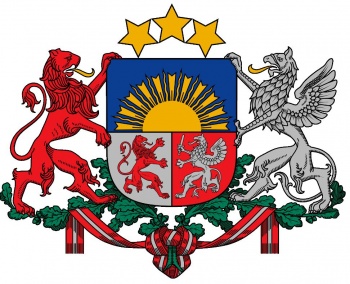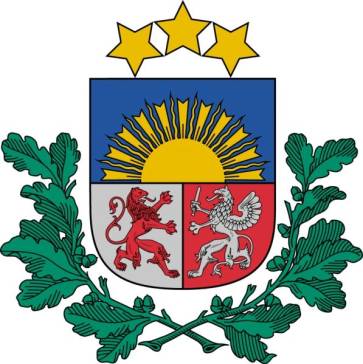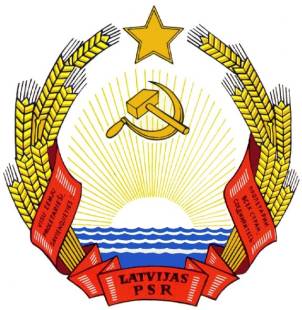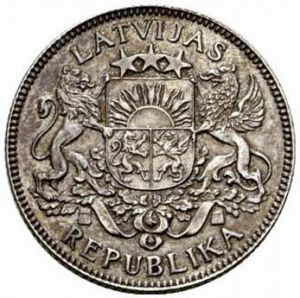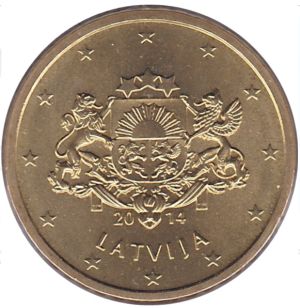National Arms of Latvia
| Heraldry of the World Pasaules heraldika |
| Latvian heraldry portal Latvias ģerboņi Latvijas heraldika |
|
NATIONAL ARMS OF LATVIA
Official blason
Lielā valsts ģerboņa vairogs ir dalīts un pusskaldīts: 1. - zilā laukā uzlecošas zelta saules puse, 2. - sudraba laukā pretēji pagriezts sarkans lauva (Kurzeme, Zemgale), 3. - sarkanā laukā sudraba grifs ar zelta mēli un sudraba zobenu labajā ķetnā (Vidzeme, Latgale). Virs vairoga puslokā trīs zelta zvaigznes. Vairoga turētāji - labajā pusē sarkans lauva ar zelta mēli, kreisajā pusē sudraba grifs ar zelta mēli - balstās uz diviem zaļiem ozola zariem, kas saņemti ar sarkansudrabsarkanu lenti valsts karoga krāsu samēros. |- |English | blazon wanted |}
Origin/meaning
The arms were officially adopted on June 15, 1921.
In 1918 the newly created Republic of Latvia confirmed its first coat of arms. It was the rising sun with letter "L" and three stars. The rising sun symbolized the birth of new nation, "L" meant Latvia and three stars symbolized three historical regions of Latvia: Kurzeme (with Zemgale and Selija), Vidzeme and Latgale.
In the 1921 version the sun and stars remained, but the stars were placed above the shield.The two quarters in base each represent a part of the country: Courland and Semigallia (Kurzeme and Zemgale) making Western Latvia, are symbolised by a red lion. Livonia and Lettgallia (Vidzeme and Latgale) making Eastern Latvia, are symbolized by a griffin. These symbols are repeated by the supporters.
The garland of oak symbolizes power and endurance and refers to the holy oak-tree of the ancient lettonians.
The arms can also be used in simpler versions:
| The middle arms |
The small arms |
For the Latvian Soviet Republic of 1940-1991 a soviet-style national emblem was adopted:
| The emblem from 1940-1991 |
| The arms on a 1923 coin |
The arms on a 2014 coin |
Contact and Support
Partners:
Your logo here ?
Contact us
© 1995-2025, Heraldry of the World, Ralf Hartemink 
Index of the site


